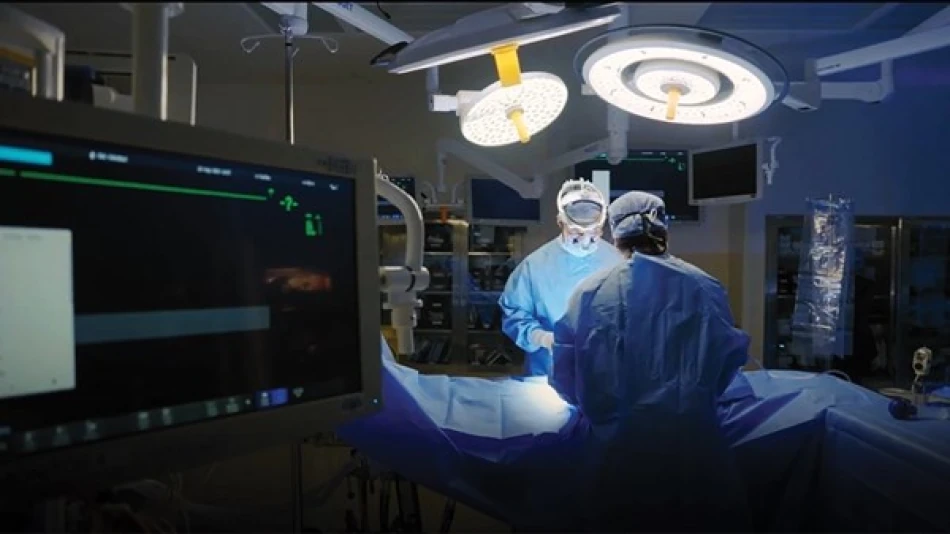
Abu Dhabi Organ Transplants Surpass 1,090 Since National Donation Program 'Hayat' Launched
Abu Dhabi Emerges as Middle East's Organ Transplant Powerhouse with Record 1,090 Successful Procedures
Abu Dhabi has positioned itself as a regional medical hub by achieving a milestone of 1,090 successful organ transplants since launching its national program in 2017, with 290 procedures completed in 2024 alone. This achievement places the emirate at the forefront of advanced medical care in the Middle East, rivaling established transplant centers in developed nations while addressing the critical organ shortage affecting the region.
Impressive Numbers Signal Growing Medical Sophistication
The 2024 transplant figures reveal the breadth of Abu Dhabi's capabilities: 7 heart transplants, 142 kidney procedures, 117 liver transplants, 22 lung operations, and 2 pancreas transplants. These numbers represent more than statistical achievements—they demonstrate the emirate's commitment to becoming a medical destination that can compete with renowned centers in the United States and Europe.
The program operates through four specialized centers across major healthcare facilities, creating a comprehensive network that can handle complex multi-organ procedures. This infrastructure development mirrors successful models seen in Singapore and other medical tourism hubs that have invested heavily in specialized care.
Cleveland Clinic Abu Dhabi Leads Innovation Drive
Cleveland Clinic Abu Dhabi has emerged as the flagship institution, performing 241 multi-organ transplants in 2024. The hospital achieved several regional firsts, including the UAE's first combined heart-lung transplant and the region's first lung-liver combination procedure in 2023. The facility also completed the country's first triple kidney exchange, showcasing sophisticated coordination capabilities.
These complex procedures require extensive medical expertise and coordination—capabilities that typically take decades to develop. The rapid advancement suggests significant investment in both technology and human resources, positioning Abu Dhabi to attract patients from across the Middle East and beyond.
Local Healthcare Groups Expand Capabilities
PureHealth's Growing Footprint
Sheikh Khalifa Medical City, part of the Middle East's largest healthcare group PureHealth, performed over 114 kidney transplants in 2024 while expanding its liver transplant program to include both adult and pediatric cases. This expansion reflects growing confidence in local capabilities and reduces the need for patients to seek treatment abroad.
Sheikh Shakhbout Medical City has focused on research excellence, presenting 10 research papers at international conferences and winning "Best Research Abstract" at the 2023 International Society for Organ Donation conference in Las Vegas. The facility also achieved a medical first by conducting the country's initial organ donation from a COVID-19 patient, demonstrating adaptability during challenging circumstances.
Burjeel Medical City's Pediatric Focus
Burjeel Medical City has carved out a niche in pediatric transplants, performing the UAE's first living donor liver transplant for a child and completing the youngest liver transplant case—a five-month-old infant. The center also pioneered blood-type incompatible kidney transplants, expanding treatment options for difficult-to-match patients.
Regional Competition and Medical Tourism Implications
Abu Dhabi's transplant success positions it to compete directly with established medical tourism destinations. Countries like Thailand, India, and Turkey have traditionally dominated this market, but the UAE's combination of advanced facilities, English-speaking staff, and strategic location creates compelling advantages for regional patients.
The emirate's achievement also challenges other Gulf states to enhance their medical capabilities. Saudi Arabia's Vision 2030 includes significant healthcare investments, while Qatar continues developing its medical sector ahead of long-term economic diversification goals.
Investment and Infrastructure Success
The rapid development of transplant capabilities reflects broader UAE healthcare investments exceeding $3 billion in recent years. This spending has created a medical ecosystem that can attract top international talent while developing local expertise—a model that other emerging economies are likely to study and replicate.
Dr. Noura Al Ghaithi, Undersecretary of Abu Dhabi's Department of Health, emphasized that advanced infrastructure, medical expertise, and innovation adoption have established Abu Dhabi as a regional leader with influence extending beyond the Middle East. The success also supports the UAE's broader economic diversification strategy, reducing dependence on oil revenues while building knowledge-based industries.
Future Growth Trajectory
The "Hayat" organ donation program's expansion suggests continued growth potential. Public awareness campaigns and community engagement efforts aim to increase donation rates, addressing one of the most significant constraints on transplant program growth globally.
As Abu Dhabi's medical reputation grows, the emirate is positioned to attract not only patients but also medical professionals and research institutions, creating a virtuous cycle that could establish it as the Middle East's premier medical destination within the next decade.
Most Viewed News

 Layla Al Mansoori
Layla Al Mansoori






